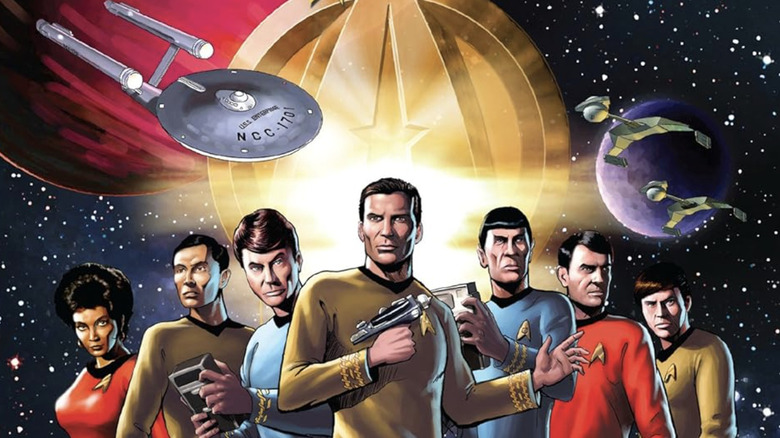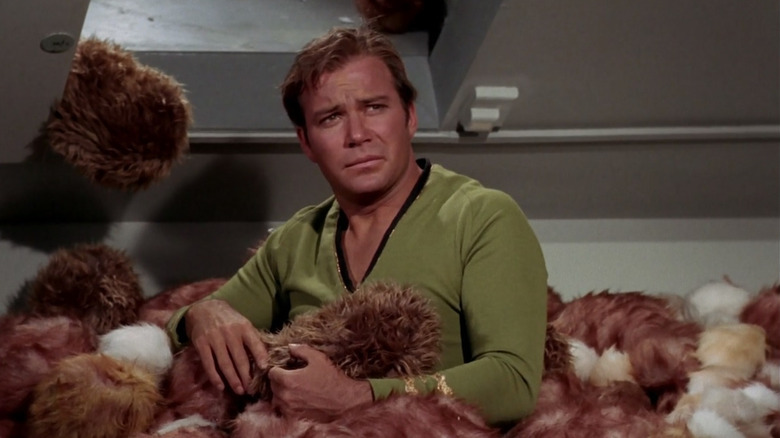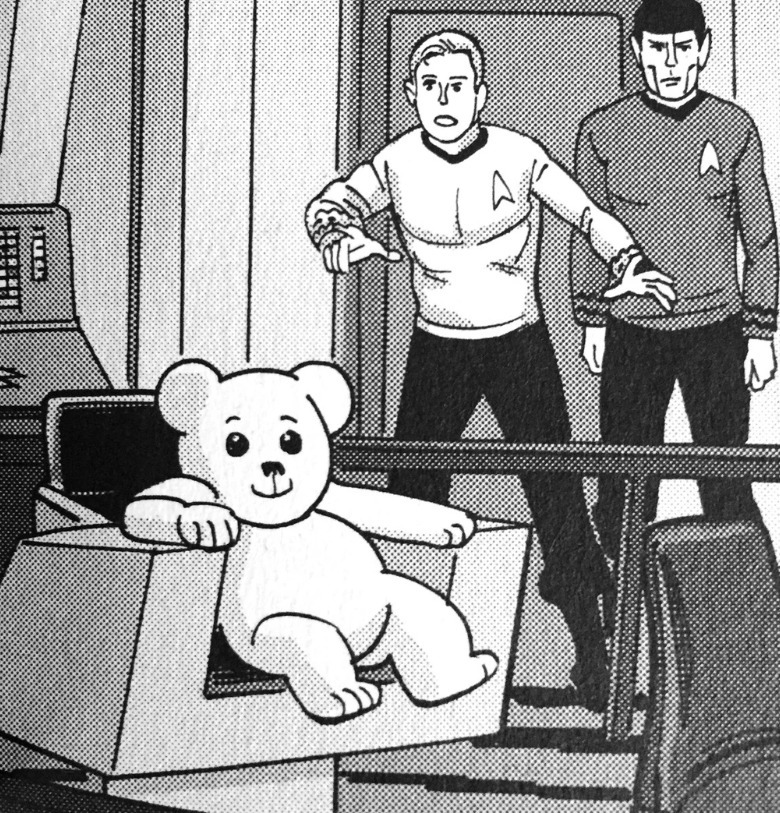A Rejected Star Trek Episode Found Second Life As A Manga
"The Trouble With Tribbles" is one of the most famous "Star Trek" episodes — but it took some rejected pitches to get there. "Tribbles" writer David Gerrold saved one of those pitches and later wrote it into a full story, just not as an episode.
"Star Trek" imagines a future for all, but it's also a very American TV series; "Space... the final frontier!" evokes the age of exploration and Manifest Destiny because series creator Gene Roddenberry first pitched "Trek" as akin to a Western. Yet, again, there are Trekkies worldwide because the series eagerly invites them along for the trek, whether that be on TV, at the movies, or in books.
The world of "Star Trek" tie-in novels and comics is not as cohesive as the "Star Wars" expanded universe — and "Trek" ancillary media gets dismissed even more readily as apocrypha by the TV writers — but it's just as expansive. "Star Trek" books, from episode novelizations to original novels to reference books, have been published since back when "The Original Series" was on air.
One of those reference books, penned by Gerrold, tells the story of how "The Trouble With Tribbles" was conceived and eventually made. The book, too, is titled "The Trouble With Tribbles" because the episode title fittingly adorns Gerrold's own struggles in selling a "Star Trek" script.
One of his rejected premises, "Bandi," saw an empathetic creature slip onto the Enterprise and start manipulating the crew's emotions. It never became an episode, of course, but Gerrold later turned the idea into a chapter of the "Star Trek" manga. Yes, there is indeed a "Star Trek" manga, complete with black and white coloring, that was distributed by Tokyopop (though it is currently out of print). "Bandi" appears in the third and final volume, "Uchu," with art supplied by penciler/inker Don Hudson and toner by Steve Buccellato.
The Bandi was an early draft of A Trouble With Tribbles
Gerrold was only 22 years old when "Star Trek" debuted; he had no writing credits but plenty of passion for the series. His 60-page-episode outline, "Tomorrow Was Yesterday," was rejected — but only because it would be too expensive to film. Instead, it got Gerrold a meeting with "Star Trek" story editor Gene Coon, who encouraged him to pitch episode premises should the show be picked up for season 2. During that meeting, Gerrold suggested an episode where rapidly-breeding creatures take over the Enterprise. The reaction?
"Gene just smiled and shook his head. 'Sounds cute, but it would probably cost too much. We'd have to build the creatures. No, think of something else.'"
"Tribbles" was the fifth episode premise that Gerrold submitted, and of course the one that actually got made. It still went through plenty of revision, though; In one draft titled "A Fuzzy Thing Happened to Me...", the Tribbles were known only as the Fuzzies.
Gerrold wrote of his episode premises, "Only my incredible enthusiasm and self-confidence kept me from spotting the many flaws and inconsistencies in them." When he came back to "Bandi" to write the manga, he was 40 years older and more experienced as a writer. Unlike the fuzzball Tribbles, the Bandi is depicted as essentially a sentient and mobile teddy bear. A simple design, but one that could've been difficult to depict on a 1960s TV budget.
Throughout the story, the creature's empathetic powers overwhelm the Enterprise crew and cause strong emotions, ("The Naked Time," anyone?) ranging from strong fear to protectiveness of the Bandi to love and happiness. The manga also includes references to Tribbles, with Kirk fretting that the Bandi creature will cause similar trouble — this, of course, is Gerrold shouting out his most famous "Star Trek" story. "Tribbles" ended with Scotty (James Doohan) solving the trouble by "giving" the animals over to the Klingons. Bandi, instead, gets a Vulcan nerve pinch before being sent to a happy life on a nature reserve.
The manga art style makes the Bandi resemble similar cutesy creatures such as Pikachu or Hamtaro the Hamster — with that face, how could you not want to give it a happy ending?


